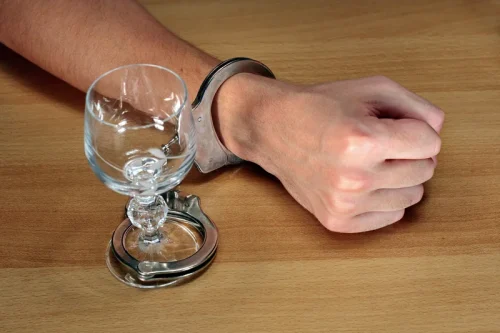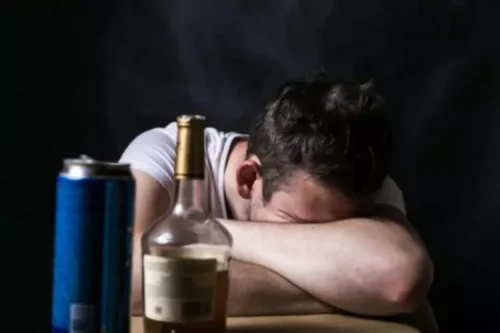Should You Drink Alcohol If You Have High Blood Pressure?

The result is presented in Table 6; there was no significant difference between results given by the two models. After de‐duplication and screening of titles and https://ecosoberhouse.com/ abstracts, we were left with 482 citations for further assessment. We retrieved full‐text articles for those citations and included 32 studies (Figure 1).
deRijke 1996 published data only
But when you ingest too much alcohol for your liver to process in a timely manner, a buildup of toxic substances begins to take a toll on your liver. Dr. Sengupta shares some of the not-so-obvious effects that alcohol has on your body. And that’s on top of the toll that alcohol use can take on relationships, not to mention the potential for financial strain and legal troubles. You probably already know that excessive drinking can affect you in more ways than one. We will contact the investigators of the studies via email, telephone call, letter or fax to request missing data (Higgins 2011. If investigators of the studies do not respond the study may be excluded. There’s not currently a recommended amount of alcohol for people with hypertension since this can vary from person to person.
Summary of findings
Because there are no published standards for differentiating between low and medium doses of alcohol, we chose the alcohol content in one standard drink as the threshold between low dose and medium dose. Because the alcohol content in one standard drink varies among different countries (ranging from 8 g to 14 g), we chose the Canadian standard for an alcoholic beverage, which is 14 g of pure alcohol (CCSA). Accordingly, we considered up to 14 g of alcohol as a low dose of alcohol.
Vena 2018b published data only

The hypertensive effect of alcohol after 13 hours of consumption could be the result of the rise in vasoconstrictors and the homeostatic response to restore blood pressure. Plasma renin activity was reported to be increased in Kawano 2000 as a late effect of alcohol consumption. Both reviewers (ST and CT) rated the certainty of evidence independently by examining risk of bias, indirectness, inconsistency, imprecision, and publication bias. Both review authors (ST and CT) rated the certainty of evidence independently by examining risk of bias, indirectness, inconsistency, imprecision, and publication bias. We are also moderately certain that high‐dose alcohol decreased blood pressure within six hours, and the effect lasted up to 12 hours.
Mental health
- High‐dose alcohol decreased SBP by 3.49 mmHg within the first six hours, and by 3.77 mmHg between 7 and 12 hours after consumption.
- The blood alcohol concentration (BAC) rises faster in women because they have a smaller volume of distribution (Kwo 1998).
- Several studies have suggested a role for cortisol in alcohol‐induced hypertension (Potter 1986; Husain,2014).
- The review concludes by suggesting several promising avenues for future research related to alcohol use and CV disease.
- As an addiction medicine physician, I often treat patients who have a complicated relationship with alcohol.
And sure, we’ve all had a night here or there where we’ve had one too many and we know it. But it’s important to make sure those nights of overindulgence are the exception and not the rule. If you’re not sure, make a note to tune into how much you’re having over the course of the next month or so. If it’s more than recommended, try to consciously pace your drinking to help reduce the spike in your blood pressure that excessive alcohol causes.

Because women could be affected differently by alcohol than men, future RCTs in women are needed. If future RCTs include both men and women, it is important that their blood pressure and heart rate readings are reported separately. Although eligible studies included East Asian, Latino, and Caucasian populations, they lacked African, South Asian, and Native Hawaiian/other Pacific Islander representation. Most of the hypertensive participants in the included studies were Japanese, so it is unclear if the difference in blood pressure between alcohol and placebo groups was due to the presence of genetic variants or the presence of hypertension.


However, “since everyone has different physiology, many people may react to the same amount of alcohol in diverse ways,” he added. A 2018 study, echoed by the World Health Organization (WHO), concluded that can alcohol lower blood pressure no amount of alcohol is safe for consumption, as alcohol leads to a loss of healthy life. Drinking frequently or binging on a large amount of alcohol in a small period of time can lead to health problems.
- However, the CDC states these findings may be due to other lifestyle differences between people who drink moderately and those who do not.
- The reason for exclusion was documented for each citation at the full‐text level.
- The effect of cross‐over trial will be tested by doing a sensitivity analysis excluding them.
- Data from animal models and human beings with a history of long-term drinking suggest that oxidative stress may be an early and initiating mechanism.

Where trials compare more than one dose of alcohol, each comparison will be handled separately. Participants in the control group will be divided by the number of groups in order to avoid double counting. In addition, sensitivity analysis based on different level of bias domain will be done to address differences in risk of bias in the analyses. Acute alcohol consumption affects the renin–angiotensin–aldosterone system (RAAS) by increasing plasma renin activity (Puddey 1985). The increase in plasma renin results in increased production of angiotensin I (AI), which is converted to angiotensin II (AII) by angiotensin‐converting enzyme (ACE). The hormone AII is a potent vasoconstrictor and also stimulates aldosterone secretion from the adrenal gland, which increases sodium and water retention (Schrier 1999).
- However, researchers are still seeking to understand the full impact of certain risk factors.
- They do not pass readily through cell membranes, and they are major components of very-low-density lipoproteins (VLDLs), which are converted in the blood to LDLs.
- Altered platelet responses (e.g., increased platelet activation/aggregation) leads to blood-clot formation (or thrombosis) in certain CV conditions.


Respuestas